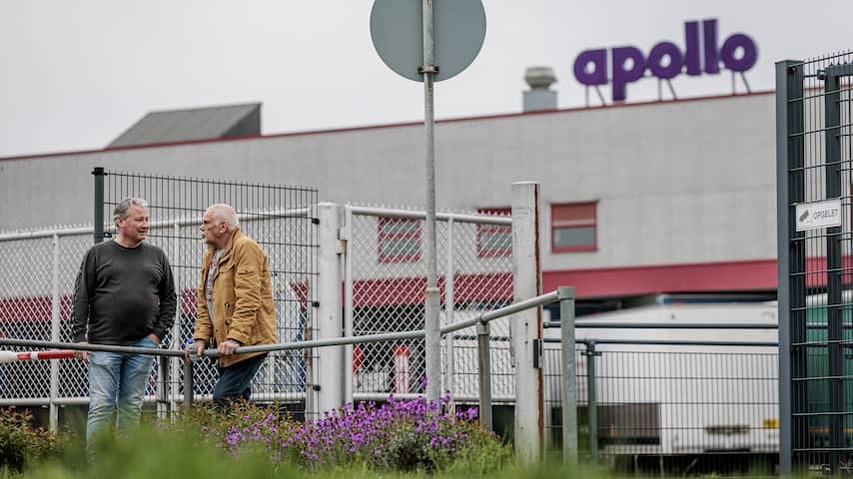
In The Netherlands, The Industry Faces The Most Business Failures. The Sector Struggles with High Energy Prices and Foreign Competition, Leading to More Factory Closures. There are fears of further setbacks.
Mass Layoffs at Tata Steel and Dow Chemicals, Numerous Bankruptcies, and Four Companies Recently Deciding to Close Their Factories in the Rotterdam Port Area. The Dutch Industry Has had Little Reason to Celebrate recently.
Adding to this, band Manufacturer Vredestein is Closing Its Factory in Enschede, While Shell is a critically examining its chemical activities in Pernis. Furthermore, Chemical Concern Sabic is Scrutinizing Its Factory in Geleen, making it clear that the industry is in Trouble.
This was also evident from Figures from Statistics Agency CBS, which Showed That Especial Refineries, Chemical Factories, And Manufacturers of Transport Equipment Are Under Pressure. They recorded turnover declines or about 10 percent at the end of last year compared to a year earlier.
The sector is of great importance to the Netherlands. IT Employs about 800,000 people and accounts for about 10 percent of the economy. The sector also accounts for a large part of exports. However, the Problems are Numerous. Companies Struggle With, Among Other Things, Staff Shortages, Regulatory Burden, High Labor Costs, and Erratic Political Policies, Both National and International.
High Interest Rates Hurt
The inflation wave of 2022 and 2023 has also not leg good for the industry, accordance to Albert Jan Swart, Sector Economist Industry at ABN AMRO. “The Higher Prices Meant That Consumers Bought Less and Companies Therefore Received FeWer Orders. In Addition, Interest Rates Went Up.”
Interest Rates Play a Major Role in the Industry because the sector is Highly Dependent on Large Investments, for Example for New Factories and Machines. Companies finance thesis with Loans, which Become More Expective as Interest Rates Rise, Swart Explains.
However, High Energy Prices Are The Biggest Stumbling Block. Companies in the Netherlands Pay An Average or 95 euros for a megawatt Hour of Electricity, Tens of Euros More than in surrounding Countries. ESpeciate industries that use a lot of energy, such as steel producers and chemical companies, suffer from this.
This is partly because we have high network tariffs in our country as a results of large investments in the electricity grid. Furthermore, Electricity Production in the Netherlands is More Expective Than In Surrounding Countries, For Example because Power Plants of Use Gas to Produce Electricity.
Competition from Outside Europe is in the way
And the list of problems is not yet complete, because competition from distant lands also Hurts. Swart Points to the Bankruptcies of Several Companies That Recycle Plastic. “They face competition from Chinese companies, which can make new plastic with cheap russian oil at a low price.”
Chemical Company Tronox Could also No Longer Compete with Foreign Countries and Therefore Decided to Close its factory in the Rotterdam Port. These and other bankruptcies in the Port Area Moved Port Manager Port of Rotterdam to raise the alarm with the Dutch Politics. They should do something about the high costs, many rules and other bottlenecks such as the nitrogen problem.
Politics has now tasks Action. For Example, Companies Can Get A Discount On Their Energy Bill for Longer. Furthermore, a line is drawn through the intended plastic tax and the co2 tax will not be inceased further. However, there are Doubtts Whether That is Enough. For Example, Employers’ Organizations VNO-NCW and MKB-Nederland had Hoped for More Measures to Lower the Energy Bill.
Industry Needs Foreign Personnel
Swart also Expects the Problems to Continue In The Coming Period. He points to a recently survey by the Dutch Association for Purchasing Management. This showed a decrease in the number of orders for the industry. Business Activity Has Been Declining Almost Every Month Since Last Summer, AS HAS Employment.
Employers’ Association AWVN also does not see the industry Improving Quickly. “We have leg warning about thesis for more than a year,” Says a Spokesperson. In Addition to High Energy Costs, The Association Points to the Persistent Staff Shortage. “We need people from Abroad, for whom we must have favorable regulations.” The fact that regulations for expats in the Netherlands are under pressure does not help with this.
Furthermore, Clear Government Policy is Essential Accordance to AWVN. “If investments have made to be made, companies look ten to twenty years ahead. Need Certainty. This creates a stronger competitive position compared to foreign countries. When Companies Investigate in whathiches are in the adventage, it must already alwayWays’